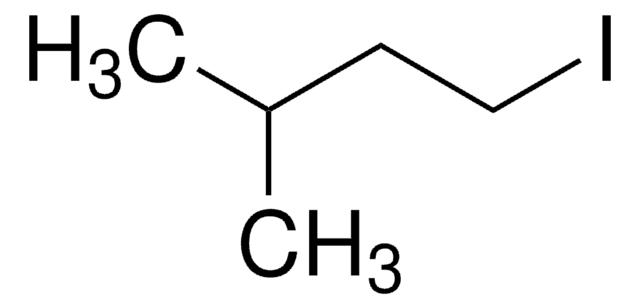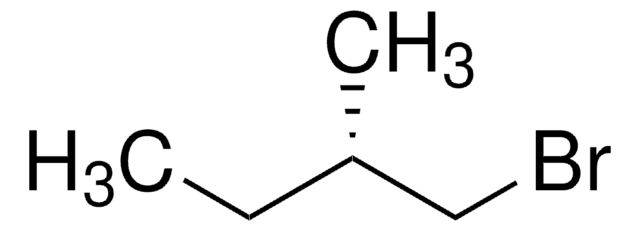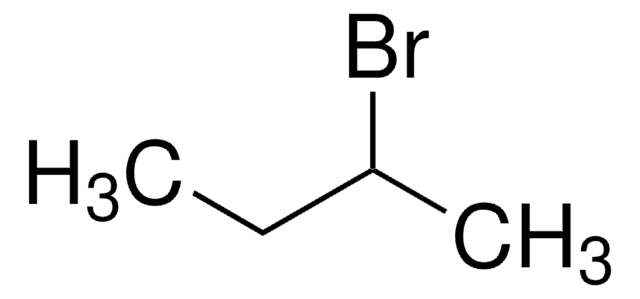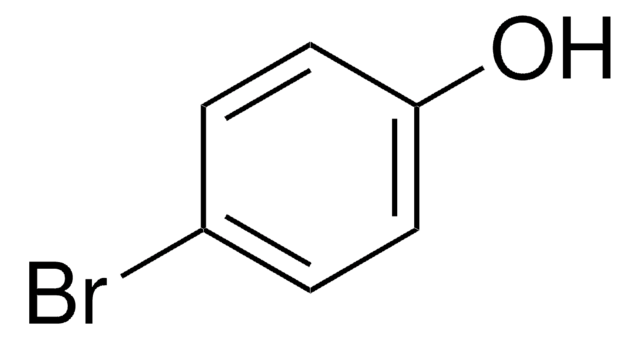124095
1-Bromo-3-methylbutane
96%
Synonym(s):
Isoamyl bromide, Isopentyl bromide
About This Item
Recommended Products
Assay
96%
form
liquid
refractive index
n20/D 1.4409 (lit.)
bp
120-121 °C (lit.)
mp
−112 °C (lit.)
solubility
H2O: slightly soluble at 16.5 °C (0.02g/100ml)
alcohol: miscible
diethyl ether: miscible
density
1.261 g/mL at 25 °C (lit.)
functional group
alkyl halide
storage temp.
2-8°C
SMILES string
CC(C)CCBr
InChI
1S/C5H11Br/c1-5(2)3-4-6/h5H,3-4H2,1-2H3
InChI key
YXZFFTJAHVMMLF-UHFFFAOYSA-N
Looking for similar products? Visit Product Comparison Guide
General description
Application
Signal Word
Danger
Hazard Statements
Precautionary Statements
Hazard Classifications
Aquatic Chronic 2 - Eye Irrit. 2 - Flam. Liq. 2 - Skin Irrit. 2 - STOT SE 3
Target Organs
Respiratory system
Storage Class Code
3 - Flammable liquids
WGK
WGK 3
Flash Point(F)
71.6 °F - closed cup
Flash Point(C)
22 °C - closed cup
Personal Protective Equipment
Choose from one of the most recent versions:
Already Own This Product?
Find documentation for the products that you have recently purchased in the Document Library.
Customers Also Viewed
Our team of scientists has experience in all areas of research including Life Science, Material Science, Chemical Synthesis, Chromatography, Analytical and many others.
Contact Technical Service











